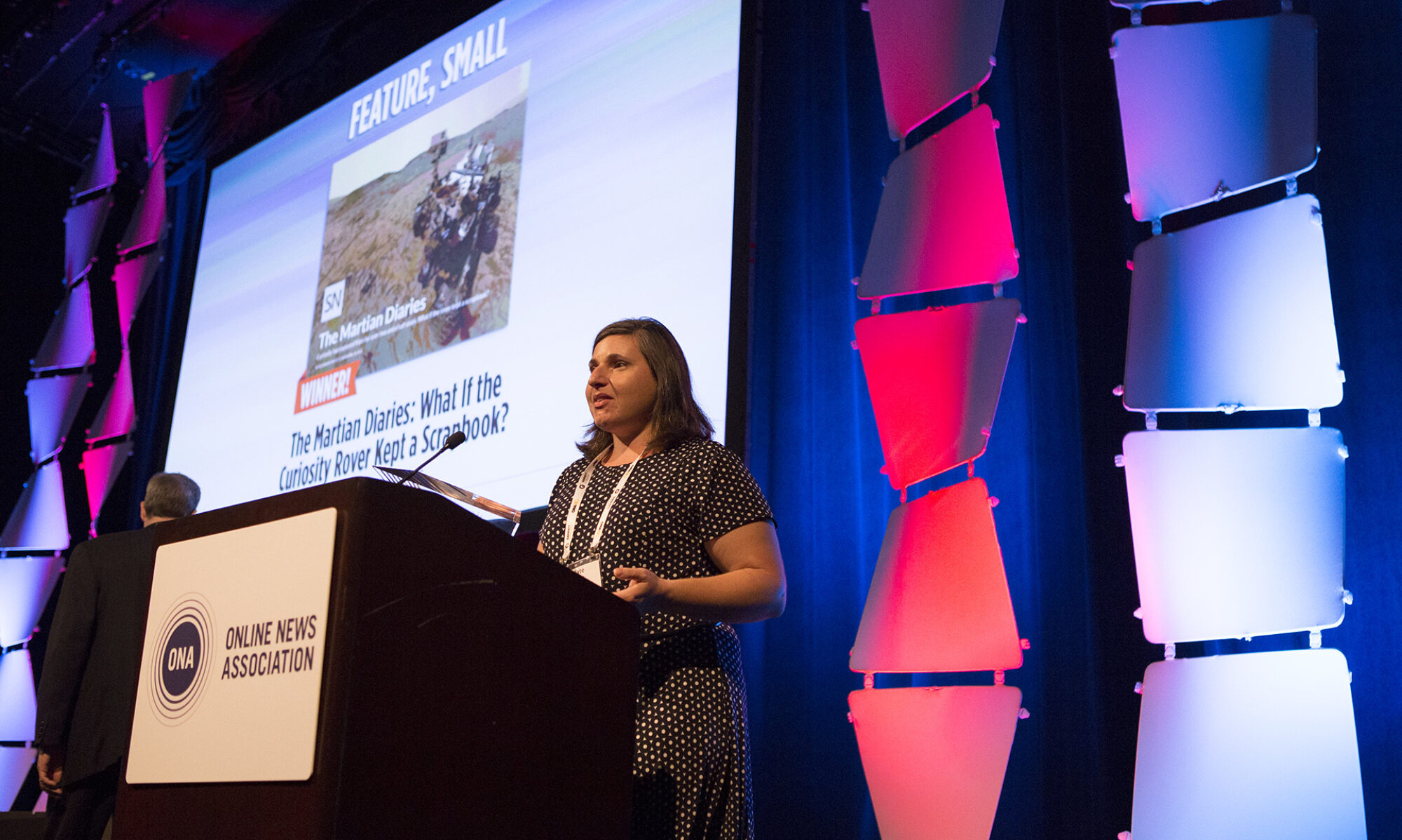UC Berkeley: Advanced Media Institute
This UC Berkeley center offers workshops and custom training programs for working journalists and science communicators.

editor • project manager • digital strategy consultant
This UC Berkeley center offers workshops and custom training programs for working journalists and science communicators.
"George Mason University’s Science Communication Program is a hub of cutting-edge research and graduate education centered on science communication theory and practice. We examine how effective communication shapes interest, attitudes, discourse, and engagement toward a host of contentious science issues and among a variety of stakeholders."
"The OpEd Project’s Public Voices Fellowship is a national initiative first piloted at Yale, Stanford, and Princeton Universities, and now rolling out in partnership with top universities and foundations across the nation." The fellowship is a one-year program designed to increase the public impact of top academics. It is customized for women and underrepresented thought …
"This 15 credit Applied Science Communication: Online and Media Writing module will introduce you to science writing techniques that are suitable for non-academic audiences. It will explore key writing structures and key principles behind non-academic writing with an emphasis on online writing. "A student-centred approach will be taken throughout this online module, and while the …
The Voices for Science program provides scientists interested in science communications and outreach with specialized training to hone their skills. Throughout the 12-month program, participants work directly with AGU staff to conduct regular outreach activities with a variety of audiences in their local communities. The program also includes participation at AGU's fall meeting, with expenses …
"This course explains why science communication is important and what it looks like in practice. It also teaches you the basic concepts and fundamental skills you need to master science communication yourself. The course explores research-based, practical ideas and inspiring stories from the field based on conversations with over fifty expert interviewees worldwide, including best-selling …
Training/credential program for STEM Ph.D. students at this university. "Students who participate in the Science Communication Credential program will have the opportunity to develop, workshop, and publish communications products including articles, podcasts, and videos for a lay audience. They will improve their communication skills, receive feedback from skilled professionals, and gain understanding of the public-facing …
"This graduate certificate program combines graduate-level training and an off-campus internship in science writing and rhetoric to provide graduate students with a solid foundation and skills for taking often-complex scientific results and communicating them to both specialist and non-scientific audiences, including the public and policymakers."
Graduate certificate focusing on communicating scientific research to the public. "The interdisciplinary certificate program emphasizes experiential learning along with lectures. The program includes courses in communications theory and techniques tailored specifically for science and engineering students. Students learn how to communicate with diverse audiences in a variety of formats, including face-to-face conversations, formal presentations, written …
"Housed in Grady College of Journalism and Mass Communication, UGA’s M.A. in Health and Medical Journalism (HMJ) is a two-year, non-thesis degree program in science writing and health reporting. Students learn to translate complex topics in medicine and healthcare for lay audiences through written, digital, and social media and have many opportunities to publish their …